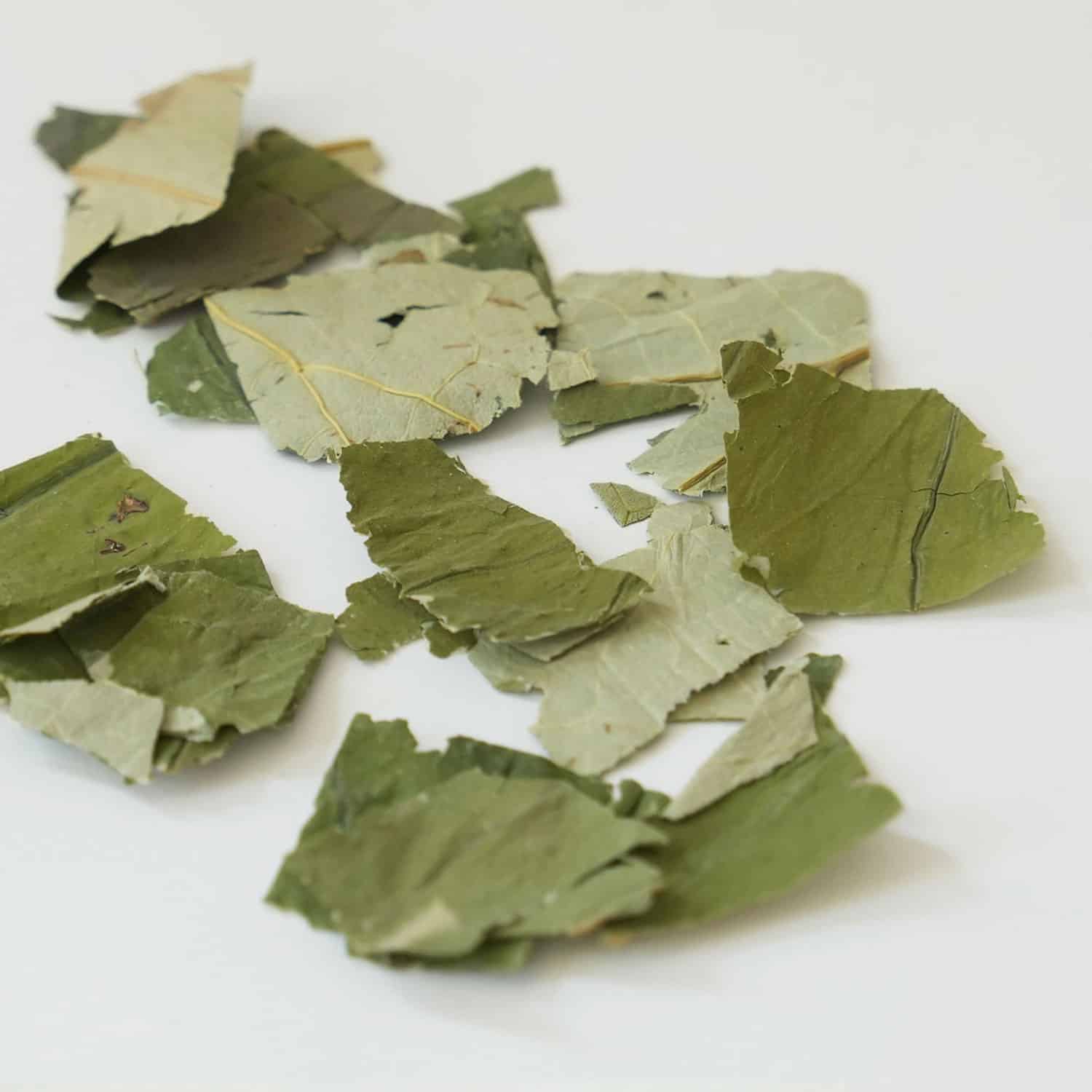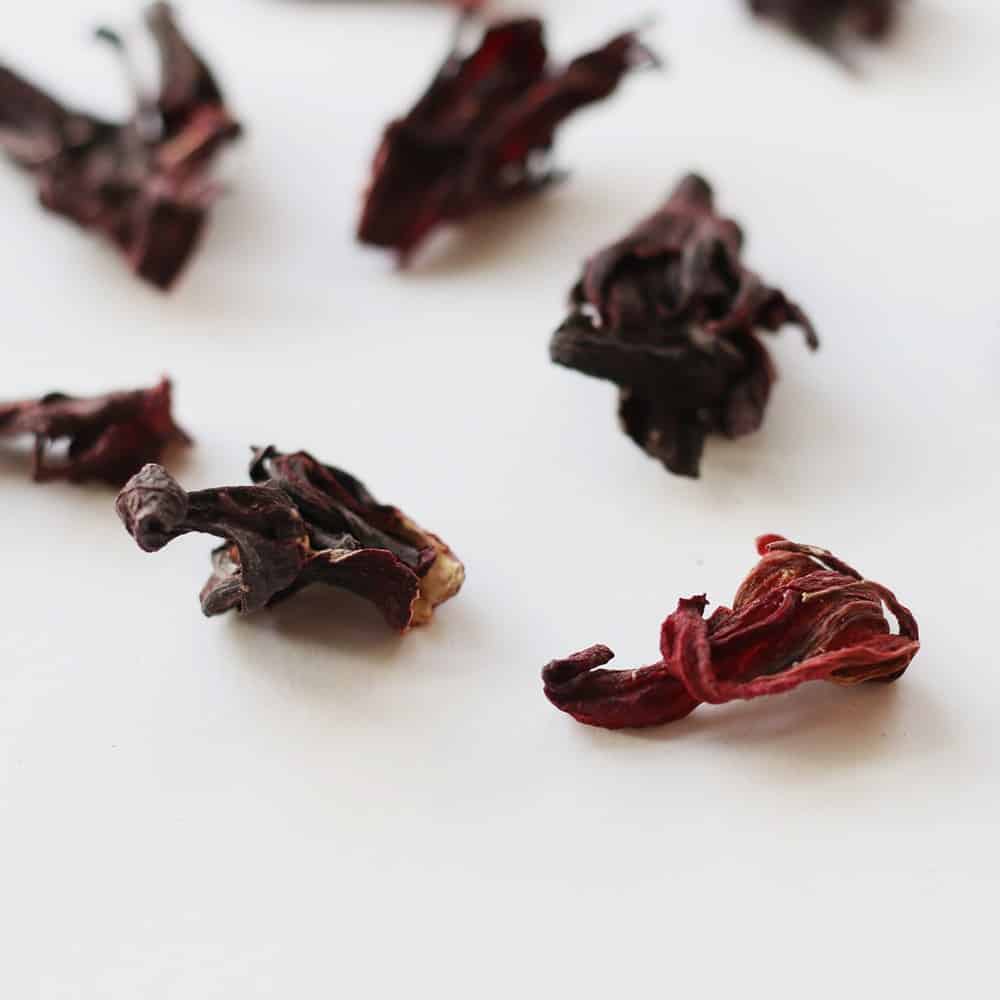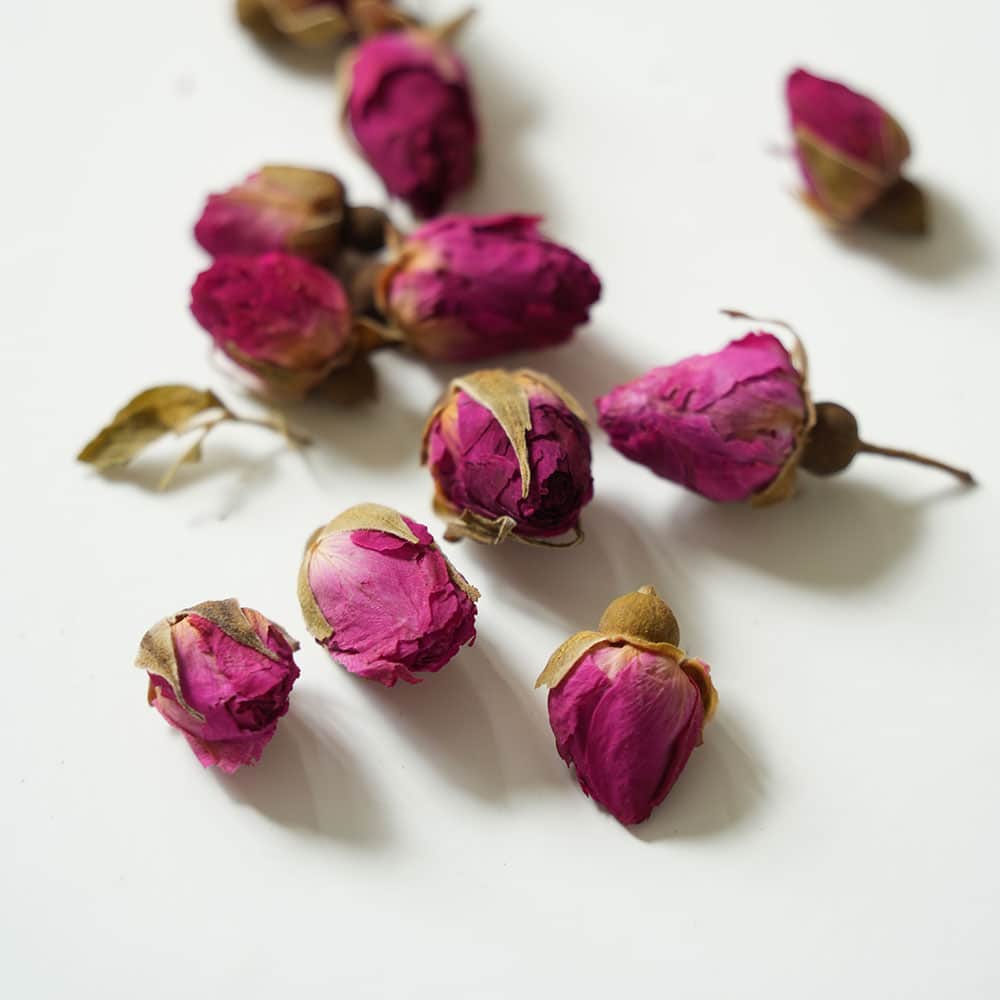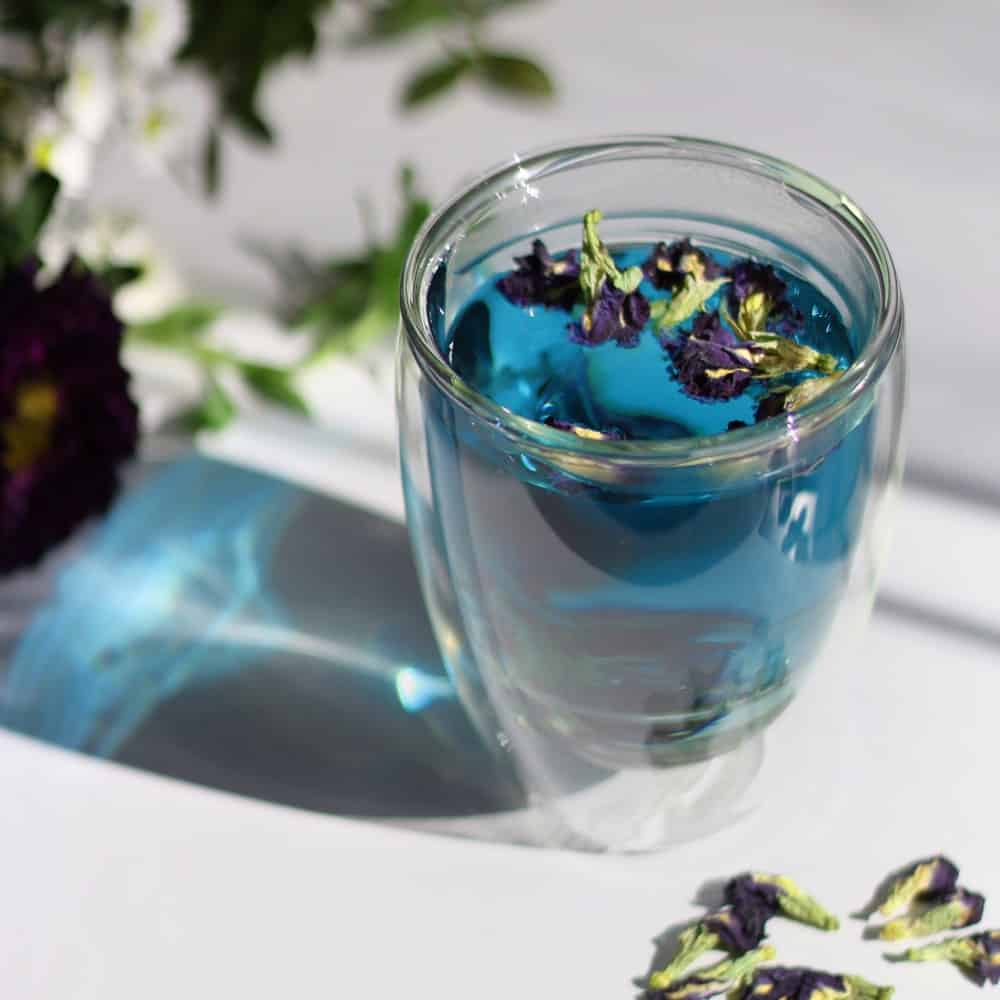No, Chinese herbal teas are not just remedies. While some are used to relieve specific discomforts, many can be enjoyed daily to support balance, hydration, and overall well-being.
Chinese herbal tea
Discover our Chinese herbal teas, crafted from carefully selected herbs, flowers, and roots sourced from China’s traditional tea-growing regions. They are a natural, caffeine-free way to support digestion, boost immunity, and promote relaxation. Rooted in centuries of tradition, they bring the benefits of time-honoured remedies into your daily ritual.
Chinese herbal teas are more than just beverages, they are an ancient practice rooted in centuries of holistic wisdom.
Drawing on traditional Chinese medicine principles, these teas are crafted from herbs, flowers, and leaves selected not only for their flavours but also for their natural health benefits.
Popular examples include Ginkgo Biloba, Lotus Leaf, Bamboo Leaf, and Hibiscus, each offering unique properties and uses.
From the many ways they can be brewed and enjoyed, to slowly savouring their aroma and flavours, the experience is as much about mindful ritual as it is about taste.
Beyond drinking, these teas have historically supported digestion, boosted immunity, and promoted relaxation, forming part of a broader holistic approach to wellbeing. Rooted in centuries of tradition, Chinese herbal teas connect cultural knowledge, time-honoured remedies, and mindful consumption into every cup.
chinese herbal tea selection
discover our of premium chinese herbal teas
Carefully sourced from China’s traditional tea-growing regions, our selection of herbal teas offers exceptional flavour and time-honoured benefits in every cup.
Butterfly Pea Tea – Premium Colour Changing Blue Tea
£6.50 – £349.00Price range: £6.50 through £349.00
chinese herbal tea health benefits
Chinese herbal tea is more than a soothing drink, it’s a centuries-old tradition of holistic wellness. Here’s a deeper dive into the health benefits each cup can offer.
Boosts Immunity
Chinese herbal teas like ginkgo biloba and hibiscus contain antioxidants that strengthen defences, support seasonal wellness, and boost vitality.
Aids Digestion
Lotus leaf and bamboo leaf teas help soothe the stomach, ease bloating, and support healthy digestion, making them ideal after meals.
Encourages Relaxation and Sleep
Rose bud tea’s gentle aroma helps reduce stress, calm the mind, and promote restful,restorative sleep.
Balances the Body
Rooted in traditional Chinese medicine, these teas help harmonise bodily systems and support overall holistic wellbeing. Regular enjoyment encourages balance and a sense of natural vitality.
Rich in Antioxidants
Chinese herbal teas such as hibiscus, chrysanthemum, and ginkgo biloba are loaded with antioxidants that protect against free radicals and support healthy skin.
Supports Energy and Focus
Energising blends like ginkgo biloba and ginseng help improve mental clarity and sustain energy without the jittery effects of coffee.
Aids Detox and Gentle Cleansing
Lotus leaf, bamboo leaf, and pu-erh herbal infusions help refresh the body, aid natural detox processes, and provide calming
Supports Energy and Focus
Certain blends are valued for their ability to enhance mental clarity and sustain energy, supporting alertness and focus throughout the day. hydration.
Check out our videos and discover the benefits of our selected Chinese herbal teas
brewing chinese herbal teas
Chinese herbal teas are deeply rooted in Traditional Chinese Medicine, where the focus extends beyond a pleasant drink to achieving therapeutic benefits. The strength and preparation of the tea often correspond to its intended purpose, whether that’s clearing heat, supporting digestion, boosting energy, or promoting restful sleep.
How you brew your tea can influence both its flavor and its effects. From simple Western-style steeping method for a gentle infusion, to concentrated brewing techniques that extract the full potency of the herbs, you can choose a method that suits your taste and wellness goals.
western-style steeping
Quick and simple, this method is perfect for enjoying the delicate flavors and aroma of Chinese herbal teas. It’s ideal when you want a lighter infusion with subtle taste.
How to Prepare:
Place 1–2 teaspoons of your chosen herbal tea into a cup or teapot.
Pour hot water (around 90–95°C / 194–203°F) over the herbs.
Steep for 3–5 minutes, depending on desired strength.
Strain and enjoy immediately.
Tip: Adjust the steeping time or amount of tea to suit your taste. This method works well for blends like chrysanthemum, hibiscus, or rose bud tea.
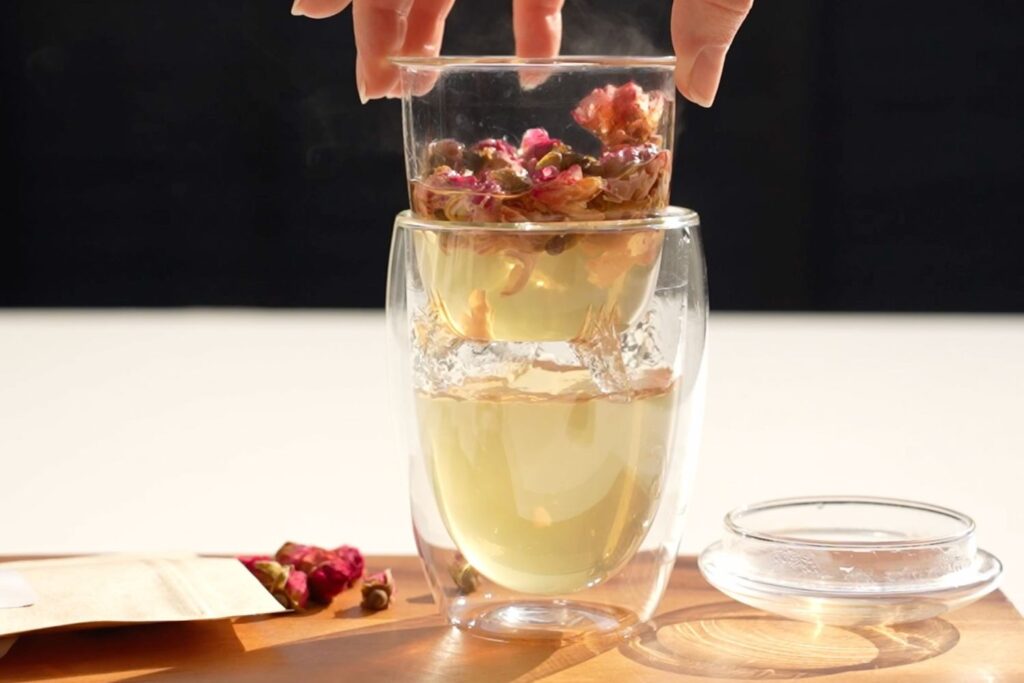
concentrated concoction
Rooted in Traditional Chinese Medicine, this method draws out the full therapeutic benefits of Chinese herbal teas. Practitioners often decoct herbs (煎药 jiān yào) to fully release their active compounds. The strength and preparation correspond to the tea’s intended purpose and the type of tea.
How to Prepare:
Use a larger herb-to-water ratio, typically 1–2 tablespoons per cup.
Place herbs in a small pot and add water.
Simmer gently for 15–45 minutes, depending on the herbs and desired strength.
Strain and pour into cups. Optionally dilute with hot water if the flavor is too intense.
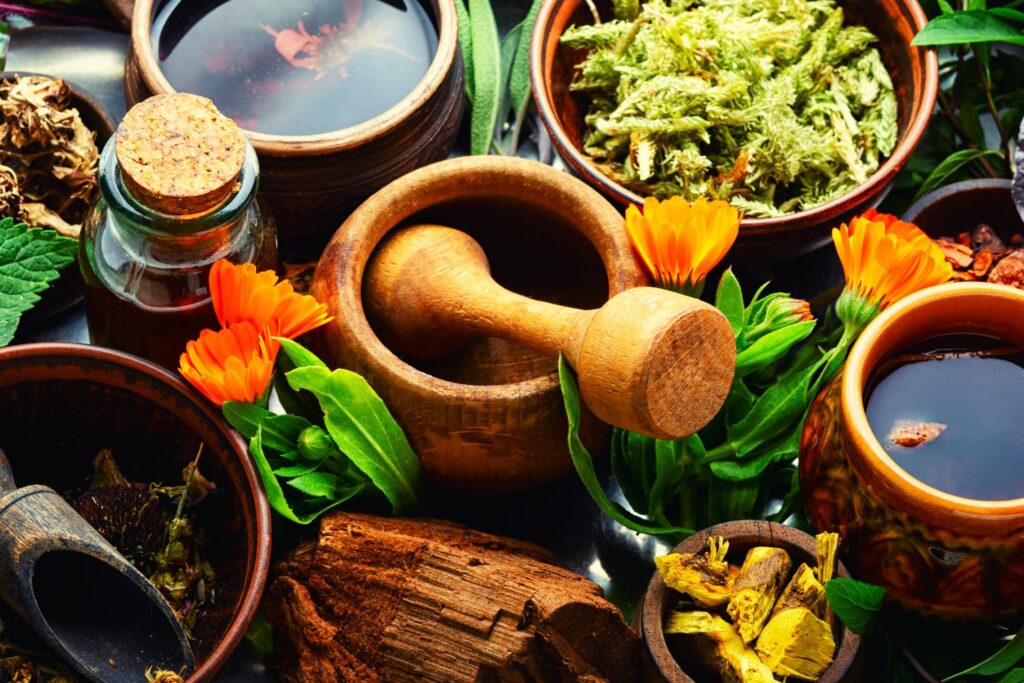

Chinese Herbal Tea FAQs
Chinese herbal tea is a traditional infusion made from herbs, flowers, fruits, and leaves, rather than the Camellia sinensis tea plant. Rooted in Traditional Chinese Medicine, these teas are valued for their therapeutic properties, such as supporting digestion, boosting immunity, and restoring balance in the body.
Yes, most Chinese herbal teas are safe for daily drinking when enjoyed in moderation. Gentle teas like chrysanthemum, lotus leaf, or rose bud can be consumed regularly, while stronger medicinal blends are best taken for specific purposes or under guidance from a TCM practitioner.
Depending on the herbs used, Chinese herbal teas may help detoxify the body, improve circulation, aid digestion, calm the mind, or boost energy. Each blend has unique properties, making them a natural way to support overall wellbeing.
It depends on the purpose. Cooling teas like chrysanthemum or hibiscus are refreshing during the day, digestion-supporting teas like lotus leaf are often taken after meals, while calming teas such as rose bud are best enjoyed in the evening.
Lotus leaf tea is one of the most popular choices for supporting weight management, as it helps with digestion and fat metabolism. Bamboo leaf and hibiscus teas are also enjoyed for their detoxifying and metabolism-boosting qualities.
For centuries, people have enjoyed Chinese herbal tea not only as a beverage but also as a natural way to support health. They are used to cool the body in summer, restore energy, improve sleep, or maintain overall balance in line with TCM principles.
Mild herbal teas like chrysanthemum or rose bud are often considered gentle, but some stronger medicinal herbs may not be suitable. Always consult your healthcare provider or a qualified TCM practitioner before drinking herbal teas during pregnancy or breastfeeding.
Most Chinese herbal teas are naturally caffeine-free, making them a great option for any time of the day or evening. However, blends that include tea leaves like green tea or pu-erh may contain some caffeine.



